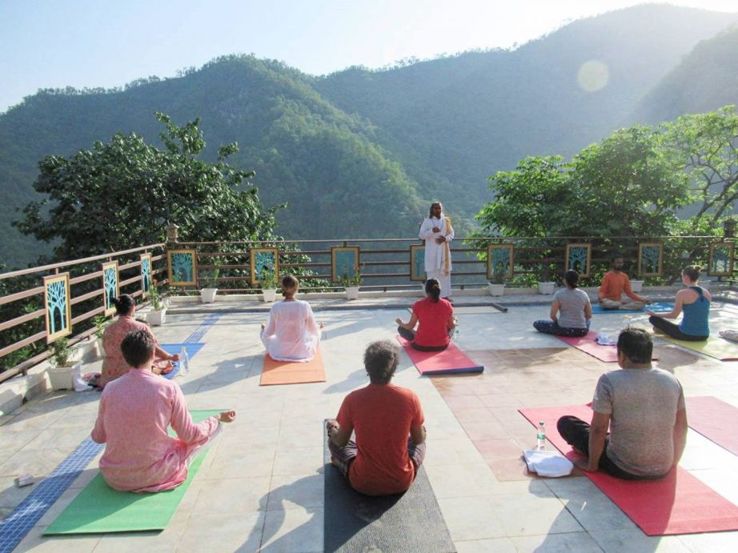In the serene embrace of the Himalayas, nestled along the banks of the sacred Ganges River, lies Rishikesh, a place where spirituality meets natural splendor. Renowned for its yoga, meditation, and Ayurvedic traditions, Rishikesh is a haven for those seeking rejuvenation of body, mind, and soul. Among the myriad offerings of wellness retreats, Panchakarma stands out as a profound healing tradition deeply rooted in Ayurveda, the ancient Indian system of medicine. In this exploration, we embark on a journey to unravel the essence of panchakarma retreats rishikesh, delving into its principles, practices, and profound benefits.
Understanding Panchakarma:
Origins and Philosophy:
Panchakarma, derived from the Sanskrit words “Pancha” meaning “five” and “Karma” meaning “actions,” is a comprehensive detoxification and rejuvenation therapy in Ayurveda. Rooted in ancient Vedic texts, Panchakarma aims to restore the balance of the doshas – Vata, Pitta, and Kapha – the fundamental energies governing the body, mind, and spirit.
Core Principles:
Detoxification:
Panchakarma focuses on eliminating toxins (ama) accumulated in the body due to improper diet, lifestyle, and environmental factors.
Rejuvenation:
Through a series of treatments, Panchakarma replenishes the body’s tissues (dhatus) and promotes vitality and longevity.
Balancing Doshas:
By addressing imbalances in Vata, Pitta, and Kapha, Panchakarma harmonizes the body’s natural functions, enhancing overall well-being.
The Panchakarma Experience in Rishikesh:
Choosing the Right Retreat:
Rishikesh offers a plethora of Panchakarma retreats rishikesh, ranging from traditional ashrams to luxury wellness resorts. It’s essential to select a retreat that aligns with individual preferences, budgets, and goals for healing and rejuvenation.
Initial Consultation and Assessment:
Upon arrival, participants undergo a thorough consultation with Ayurvedic practitioners to assess their unique constitution (Prakriti) and imbalances (Vikriti). This evaluation guides the customization of Panchakarma therapies for optimal results.
Daily Routine and Therapeutic Interventions:
Participants follow a structured daily regimen comprising cleansing practices, therapeutic treatments, yoga, meditation, and sattvic (wholesome) meals. Panchakarma therapies may include
Abhyanga:
Herbal oil massage nourishes the body and promotes circulation.
Swedana:
Herbal steam therapy to induce sweating and eliminate toxins through the skin.
Shirodhara:
Continuous pouring of warm oil on the forehead to calm the mind and nervous system.
Basti:
Herbal enemas to cleanse the colon and balance Vata dosha.
Nasya:
Nasal administration of medicated oils or powders to alleviate congestion and promote mental clarity.
Dietary Guidance and Lifestyle Recommendations:
Ayurvedic nutritionists provide personalized dietary guidelines based on individual dosha imbalances. Participants learn about suitable food choices, meal timings, and lifestyle modifications to support their healing journey beyond the retreat.
Benefits of Panchakarma Retreats:
Physical Health:
Detoxification: Panchakarma aids in the removal of accumulated toxins, improving digestion, metabolism, and immunity.
Pain Relief:
Therapeutic massages and treatments alleviate muscular tension, joint stiffness, and chronic pain conditions.
Weight Management:
By restoring metabolic balance, Panchakarma facilitates sustainable weight loss and maintenance.
Skin Rejuvenation:
Cleansing therapies promote clear, radiant skin by eliminating impurities from the body.
Mental and Emotional Well-being:
Stress Reduction:
Panchakarma retreats offer a tranquil environment conducive to relaxation, mindfulness, and stress relief.
Emotional Healing:
Through holistic therapies and emotional support, participants experience emotional release, mental clarity, and inner peace.
Enhanced Cognitive Function:
Panchakarma treatments nourish the nervous system, improving focus, concentration, and cognitive function.
Spiritual Growth:
Inner Exploration:
Rishikesh’s spiritual ambiance fosters introspection, self-discovery, and spiritual growth.
Connection with Nature:
Amidst the majestic Himalayas and sacred Ganges River, participants deepen their connection with nature and the divine.
Yoga and Meditation:
Panchakarma retreats often integrate yoga and meditation practices to cultivate mindfulness, inner harmony, and spiritual awareness.
Precautions and Considerations:
Individual Suitability:
Panchakarma may not be suitable for pregnant women, individuals with certain medical conditions, or those undergoing specific treatments. It’s crucial to consult with healthcare providers before embarking on a Panchakarma retreat.
Healing Crisis:
During Panchakarma, some participants may experience a healing crisis characterized by temporary symptoms such as fatigue, headaches, or emotional release. This phase is a natural part of the cleansing process and indicates the body’s detoxification efforts.
Post-Retreat Care:
After completing a Panchakarma retreat, it’s essential to maintain supportive dietary and lifestyle practices to sustain the benefits gained. Follow-up consultations with Ayurvedic practitioners can help individuals integrate Ayurvedic principles into their daily lives.
Conclusion:
In the sacred land of Rishikesh, Panchakarma retreats rishikesh offer a profound journey of healing, rejuvenation, and self-discovery. Rooted in ancient wisdom and tailored to individual needs, these transformative experiences restore harmony to body, mind, and spirit. As participants immerse themselves in Ayurvedic therapies, yoga, and meditation amidst the pristine beauty of the Himalayas, they embark on a path of holistic wellness and inner transformation that resonates long after their retreat concludes. Embracing the timeless wisdom of Panchakarma, individuals rediscover balance, vitality, and profound well-being in the heart of Rishikesh.




